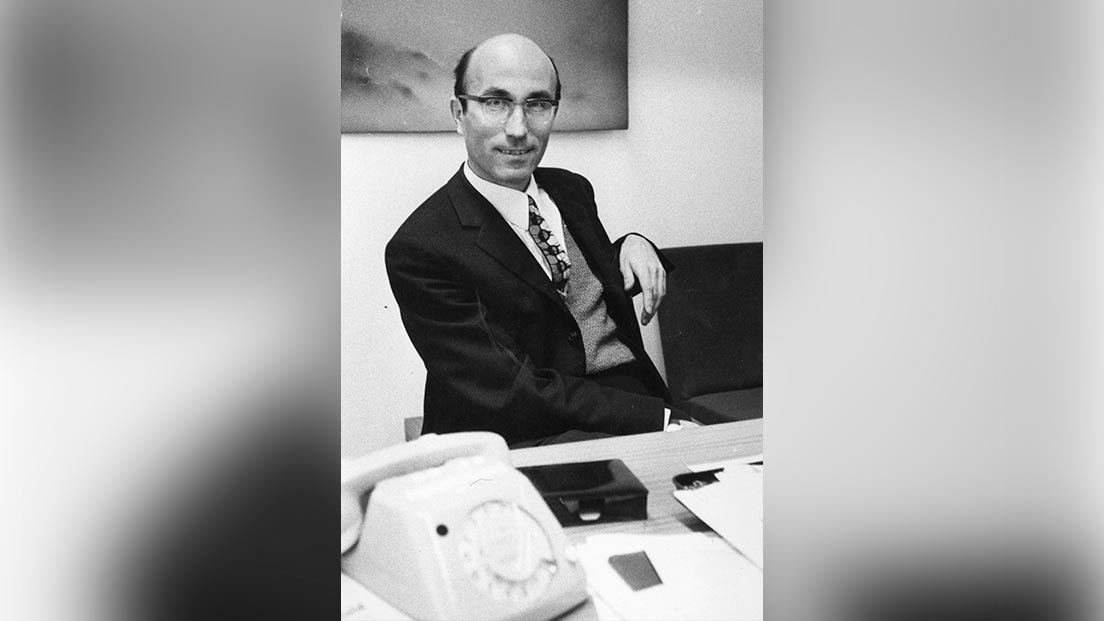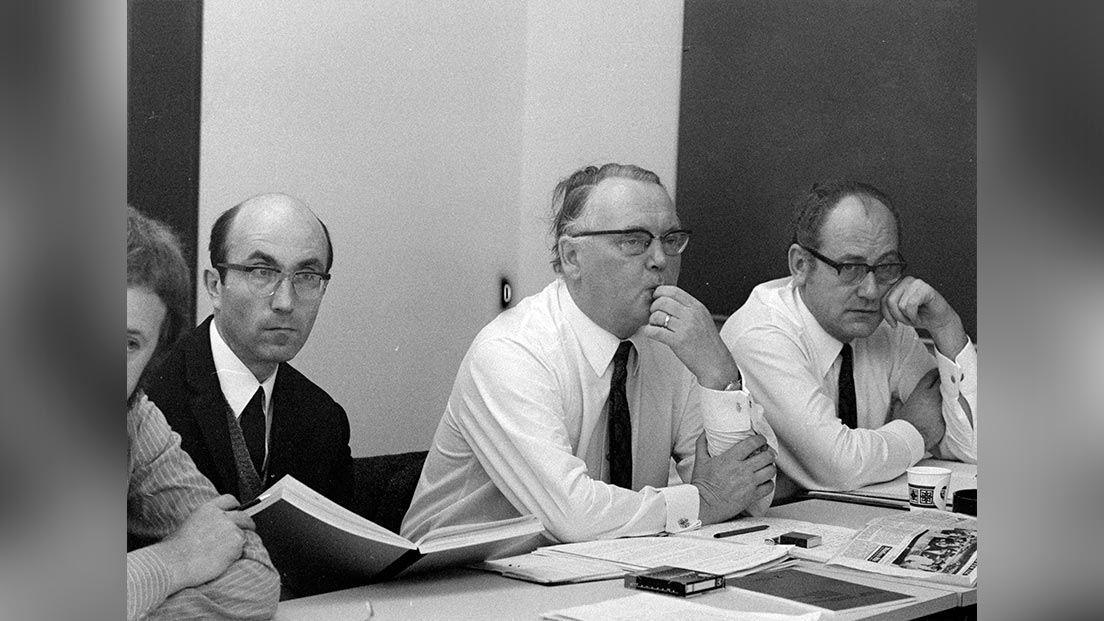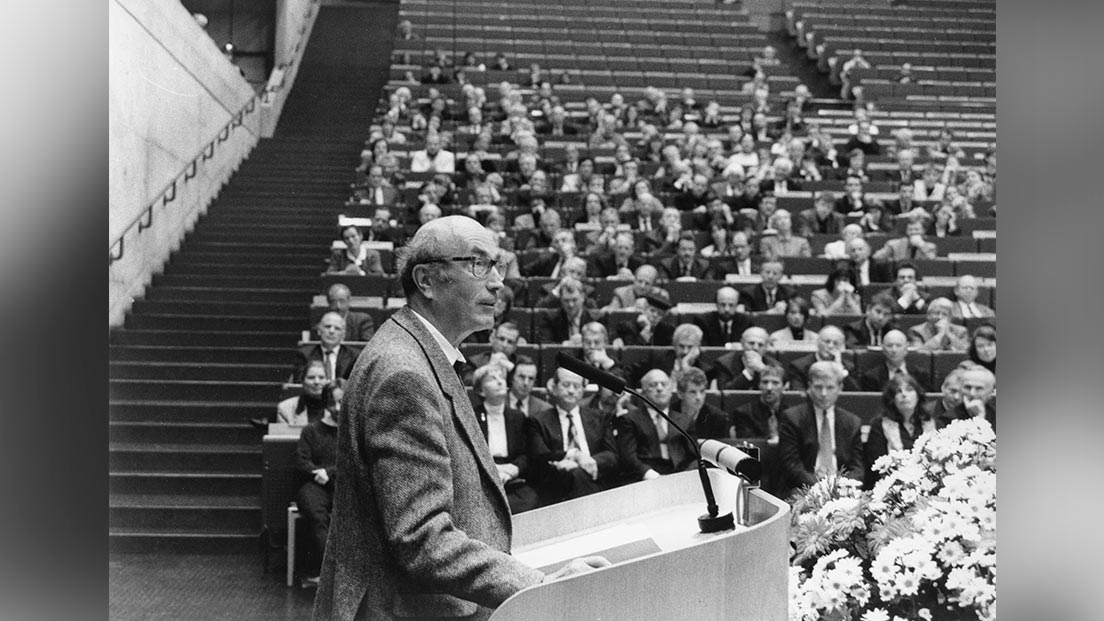
–
Photo: Ed. Heidmann
Source: Universitätsarchiv Bielefeld, FOS 01612
From Lüneberg via Harvard…
Niklas Luhmann was born on 8 December 1927 in Lüneburg as the eldest son of a brewery owner. After the war he graduated from high school and studied law in Freiburg. His first employment took him back to the Higher Administrative Court in Lüneburg. During this time he began building his Zettelkasten (index card system), which he famously used to organise and develop his ideas. During his time at the Ministry of Culture of Lower Saxony, he was given the opportunity to go to Harvard on a scholarship and study sociology and administrative sciences. There he became acquainted with Talcott Parsons, the founder of structural functionalism, whose ideas Luhmann was later to develop further in his own systems theory.
Professor Dr. Niklas Luhmann explains his systems theory in two minutes. Excerpt from a documentation of the WDR, 1973.
–
Source: WDR
…to Bielefeld
Back in Germany, Niklas Luhmann initially taught at the German University of Administrative Sciences, Speyer. Several important researchers were impressed by his work, including the sociologist Professor Dr. Helmut Schelsky. In 1965 Schelsky offered Luhmann a position at the Sozialforschungsstelle (Center for Social Research) of the University of Münster in Dortmund. When the plans for an East Westphalian university with its own faculty of sociology gathered momentum with Schelsky’s decisive involvement, he asked Luhmann to follow him to Bielefeld. In order to teach at the new reform university, Niklas Luhmann completed his doctorate and habilitation within a few months. In 1968 he was appointed to the Chair of General Sociology at the Faculty of Sociology in Bielefeld, whose character he has helped to shape to this day.
„Research project: social theory. Duration: Thirty years. Costs: none“
Luhmann’s social theory became his life’s work. With the help of his Zettelkasten, he published over four hundred articles and more than fifty books. He observed society with a faint irony, interested in “global catastrophes and local trivialities”. In 1997, in “Theory of Society”, he declared the project “social theory”, which had begun 24 years earlier, to be complete. Niklas Luhmann died one year later at the age of seventy. His legacy is now being catalogued and researched at Bielefeld University. To this day, Luhmann’s unpublished texts from his estate are still being made public.




